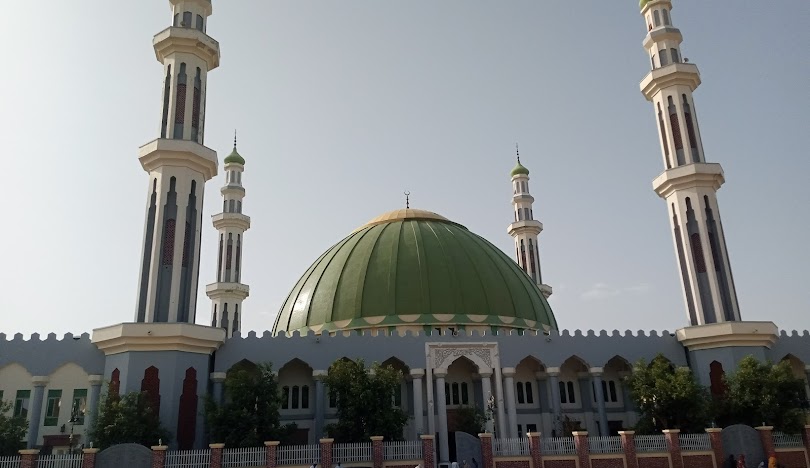In recent times, Maiduguri, the capital of Borno State in northeastern Nigeria, has gained significant traction on social media. Conversations about the city reflect a range of issues, from its historical and political significance to its current socio-economic and security challenges. Several key factors are contributing to the trending status of Maiduguri across platforms like X (formerly Twitter), Instagram, and Facebook.
Security Concerns and Insurgency
Maiduguri has long been at the center of Nigeria’s fight against the insurgency led by Boko Haram and its offshoots, particularly Islamic State in West Africa Province (ISWAP). The city has seen a resurgence in discussions on security following reports of new attacks, military operations, or government statements regarding the ongoing conflict. In early September 2024, the Nigerian military reportedly carried out offensives against Boko Haram hideouts near Maiduguri, which became a hot topic on social media, as people shared news updates, personal accounts, and analyses of the situation.
Many citizens use social media to express concerns about safety, government accountability, and the long-term effects of the conflict on daily life in Maiduguri. Others take to these platforms to offer support to residents, urging humanitarian assistance and solidarity with those affected by the violence.
Humanitarian Efforts and Refugee Crisis
Another reason for Maiduguri’s trending status is the growing focus on the humanitarian crisis in the region. The city hosts a large population of internally displaced persons (IDPs) fleeing violence in rural areas. Aid organizations like the United Nations and Médecins Sans Frontières have ramped up efforts to address hunger, healthcare, and displacement, all of which have been discussed widely online. Campaigns urging donations and calls for international attention have further amplified Maiduguri’s presence on global social media.
Images and videos of crowded IDP camps, along with reports of food shortages and inadequate healthcare, continue to circulate. These posts often spark debates on the effectiveness of government and international interventions in alleviating the suffering of displaced persons.
Infrastructure Development and Economic Activity
Despite its challenges, Maiduguri is also making headlines for infrastructural development and economic activities. The Borno State government has initiated various projects aimed at rebuilding the city’s infrastructure, including roads, healthcare facilities, and educational institutions. Social media posts highlighting new projects such as the **Maiduguri Mega School** or road construction initiatives frequently trend, sparking discussions about the potential for long-term recovery and development.
Local business communities have been vocal online about efforts to revitalize commerce, with posts celebrating the reopening of markets, the restoration of basic services, and the growth of small businesses. In particular, there’s excitement about the potential economic boom if security improves, allowing for more trade and investment.
Cultural and Social Resilience
Beyond news of conflict and rebuilding, Maiduguri has also trended for its vibrant cultural resilience. Social media users have shared positive stories of the city’s inhabitants, celebrating their endurance in the face of adversity. Posts showcasing local festivals, traditional attire, food, and arts have gained significant attention, promoting a narrative of strength and cultural pride despite the ongoing challenges.
Hashtags like #Maiduguri, #ResilientMaiduguri and #HopeForBorno have emerged, encouraging people to focus on the social cohesion and efforts of Maiduguri residents to maintain a sense of normalcy. Young people, in particular, have taken to TikTok and Instagram to showcase the city’s vibrant culture, including music and fashion trends that thrive even amidst adversity.
Political Conversations and Governance
Maiduguri’s importance in Nigeria’s political landscape is also a trending topic. As the capital of Borno State, it frequently features in discussions about regional governance, political appointments, and policy implementations. Recently, social media platforms have seen increased discourse regarding the performance of Borno’s leadership, particularly Governor Babagana Zulum, who is known for his hands-on approach to dealing with security and rebuilding efforts. His visits to troubled areas, policy announcements, and humanitarian outreach programs are often widely shared online.
In 2024, debates about the Nigerian government’s broader approach to resolving the insurgency and rebuilding Maiduguri have gained traction, especially with the general elections on the horizon. Many posts express hopes for long-term peace, while others remain skeptical of the government’s strategies and call for more transparency and accountability.
Media Coverage and Global Attention
The media’s focus on Maiduguri has also played a role in its social media prominence. International outlets such as the BBC, Al Jazeera, and CNN have covered the situation in Maiduguri extensively, with stories about insurgency, humanitarian efforts, and local resilience frequently making their way to global audiences. These reports are often shared by social media users, amplifying the reach of news about Maiduguri and ensuring it stays relevant in global conversations.
Journalists and local influencers use platforms like Twitter to provide live updates and ground reports on critical incidents, further driving Maiduguri’s trending status online. Documentaries and interviews with residents about their experiences during the conflict have also been circulated widely, sparking empathy and raising awareness.
In conclusion, Maiduguri’s trending status on social media reflects the city’s complex and multifaceted narrative. While it is often associated with the Boko Haram insurgency and the challenges that come with it, Maiduguri is also a symbol of resilience, hope, and potential recovery. As residents and observers continue to share their stories and perspectives online, Maiduguri remains a critical point of focus for both national and international audiences, emphasizing the importance of ongoing attention, intervention, and support for the city and its people.


